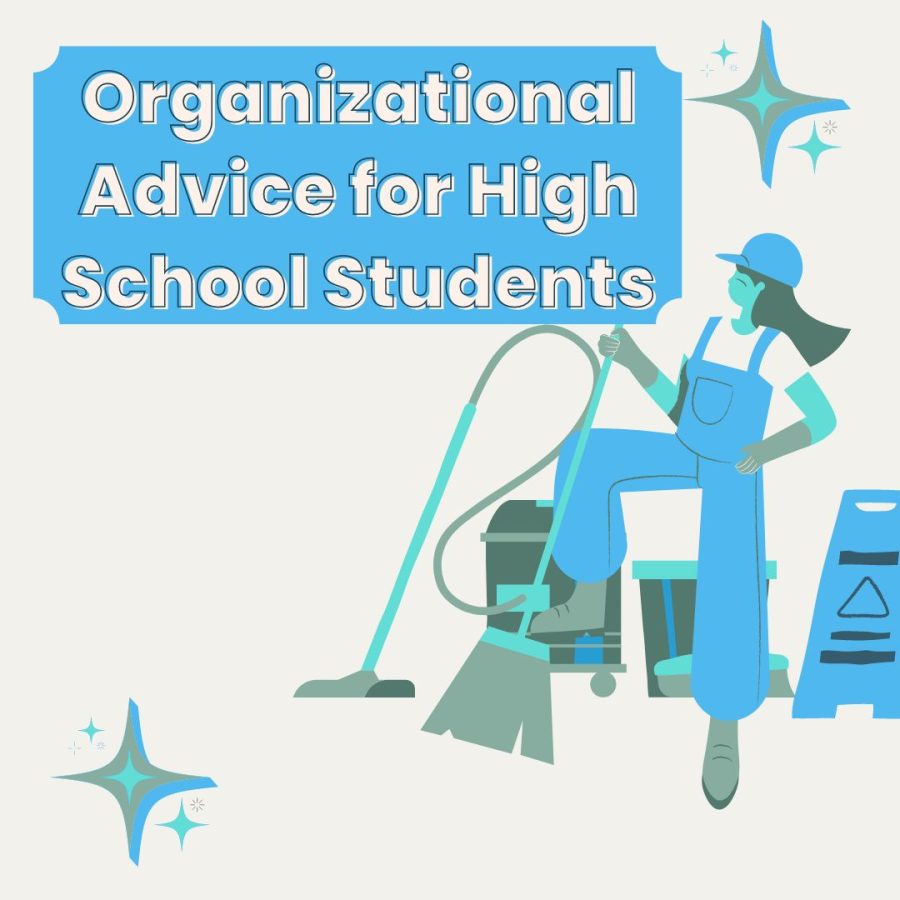Staying organized does not have to be a burden
Image created by Hannah Levenson.
February 24, 2023
Staying organized can be difficult for anyone, but especially high school students. Many high school students are juggling responsibilities such as schoolwork, a job, extracurricular activities, caring for younger siblings and making time for social relationships, which can leave little time to keep up with being organized.
In a survey conducted on the organizational habits of Solon High School (SHS) students, of the 81 responses, more than half the students responded that the most common reason they had trouble maintaining a clean space is not having the right mood or energy to clean. This reason could perhaps be attributed to the fact that teenagers often have many responsibilities.
One student who responded to the survey explained that they feel trapped in a cycle in which their messes make them feel stressed and uncomfortable, which prevents them from cleaning because they are unable to have a good mindset to find the motivation to clean. A lot of times, I have to tell myself ‘just do it’ in order to break the cycle.
Oftentimes, people ask themselves, “what’s the point of cleaning if everything is just going to become dirty again?”, which is similar to asking yourself, ‘what’s the point of eating if I am just going to get hungry again?’. The answer is that it is a part of the human experience to care for yourself and your surroundings. Telling yourself that these rituals of life are meaningful will have a more positive effect on your mindset rather than telling yourself that cleaning is useless.
Being organized also doesn’t have to be an ever-long time-consuming activity. Write down your assignments in your planner when the teacher goes over the due dates. Waiting for that load of laundry to get done in the washing machine or dryer? Use that time to clean other spaces. If you have free time in school, do your homework or start that assignment even if it isn’t due for a while. You will find more motivation to do your homework at school, than at home with endless distractions. It also can also help keep your school and personal life separate, which will leave you less overwhelmed and stressed.
If you associate staying organized with positive qualities, instead of the negative aspects of staying organized, motivation and consistency will be easier to come by. Focus on your desire or your goal for your space, on time management or whatever it is that you want to achieve. This could be cleaning your space to have friends over or living up to your Pinterest board dreams. You’re more likely to complete a task and feel satisfied if you have a goal or reward to look forward to. So set that little goal for yourself every day and treat yourself to a small reward, such as a piece of candy or an episode of your favorite show.
There are also ways to cut down on the level of mess you have to clean up. Several students in the survey explained that putting things away you use in the moment will set you up for success later. This could mean putting away the makeup you did at the same moment instead of hours later, hanging back up that sweater in your closet you decided not to wear instead of days later or putting away your breakfast plates in the dishwasher after eating instead of doing it along with all the other dishes after dinner.
Truthfully, it is impossible for most people to have absolutely everything organized and clean, so you should be more forgiving with yourself for not having a space that is absolutely spotless. One student in the survey suggested that having a bin for stuff you are unsure what to do with can be helpful, as the stuff is all in one place and contained. You can even put it out of sight such as in a closet or in a basement to ease your mind.
Not every method is going to work for everyone. If one method doesn’t help you, don’t give up, try a new method. If all else fails and you feel like your mess is consuming your life, reach out to a trusted adult such as a parent, an older sibling, your favorite teacher or your guidance counselor, as they likely have different helpful advice to give themselves.

